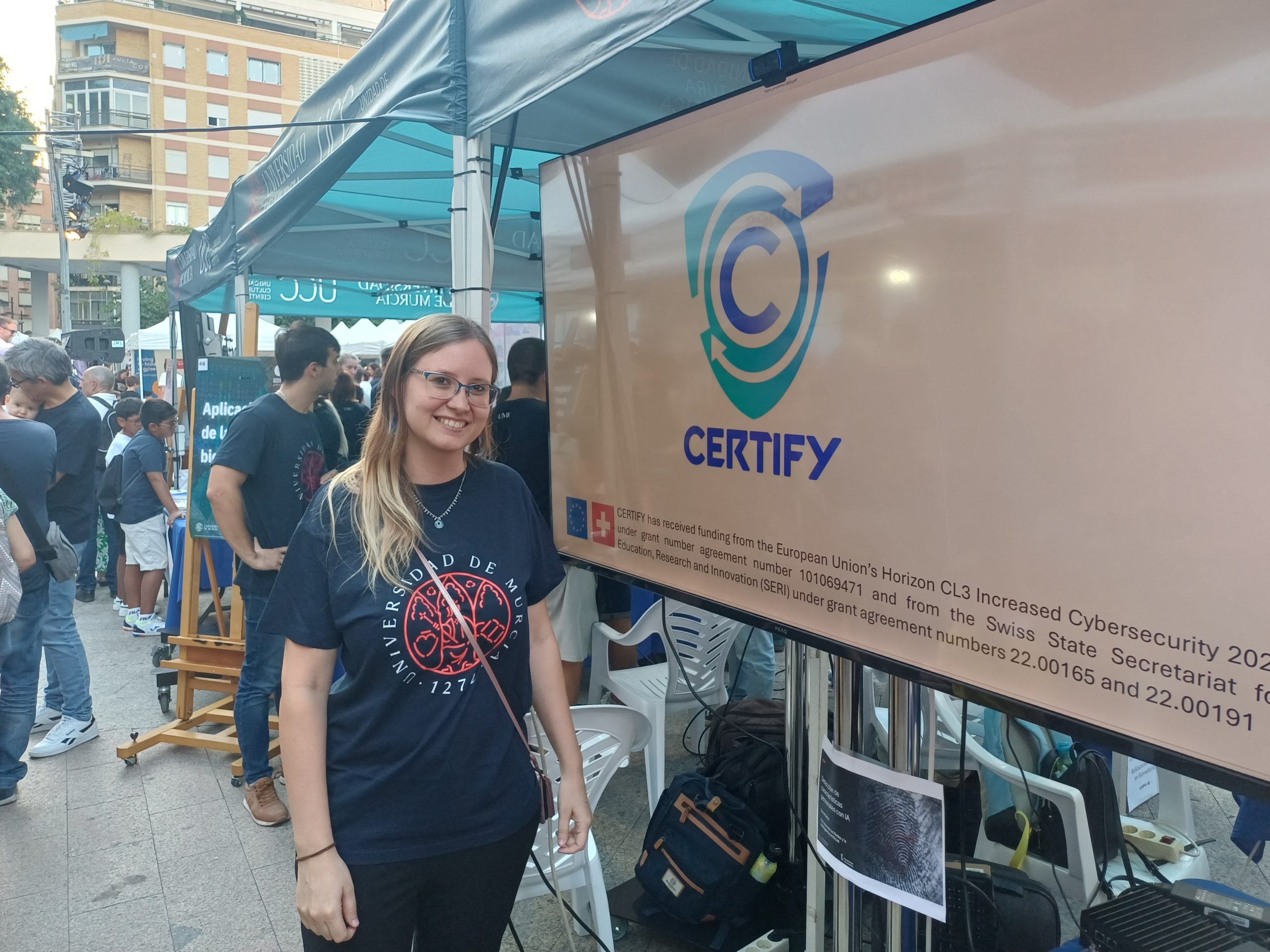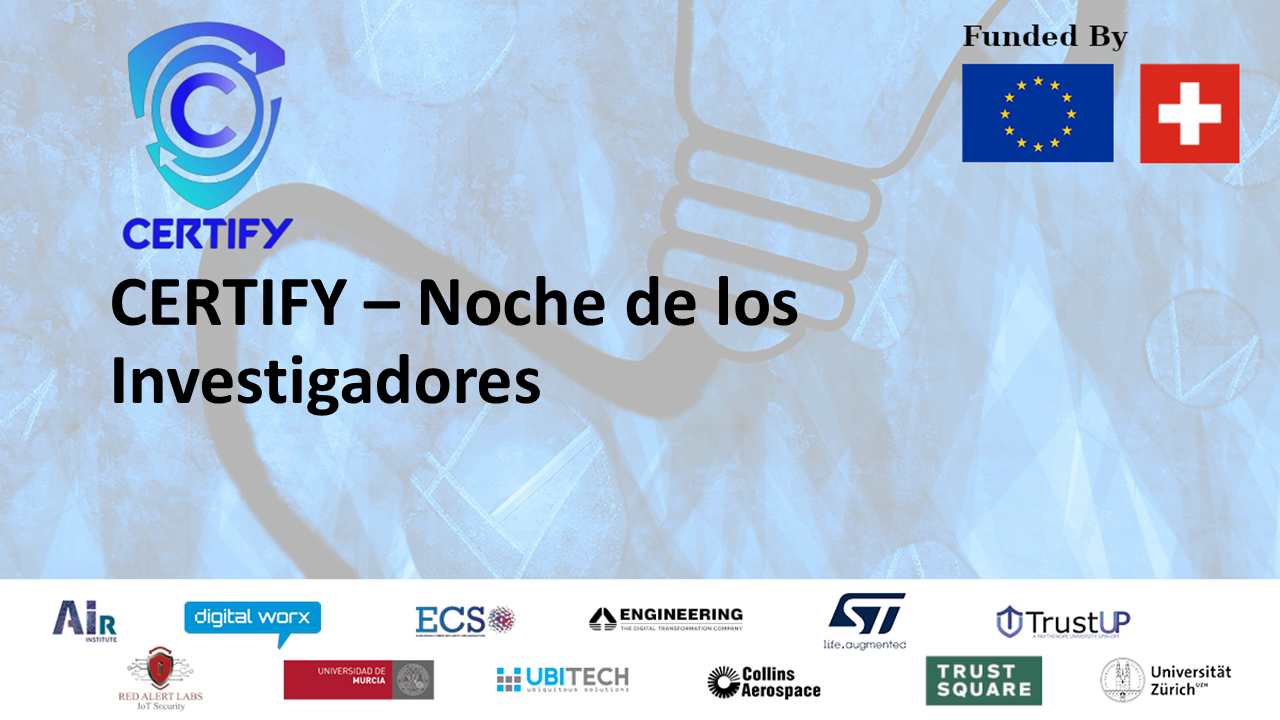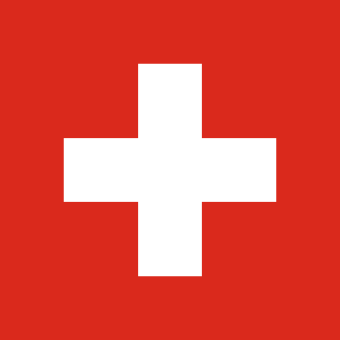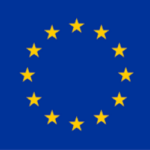Noche de los Investigadores
About the Event
The “Noche de los Investigadores” (Researchers’ Night) is a large-scale science outreach celebration held annually as part of the European Researchers’ Night initiative. This year, on Friday, September 26, from 6 pm to 10 pm. the University of Murcia hosted its most ambitious edition yet - featuring around 350 free activities.
Workshops, live experiments, interactive stands, and science shows filled public spaces across the city, bringing research directly to the community. The event invited everyone - children, families, students, and adults - to experience the excitement of discovery and see what science looks like up close.
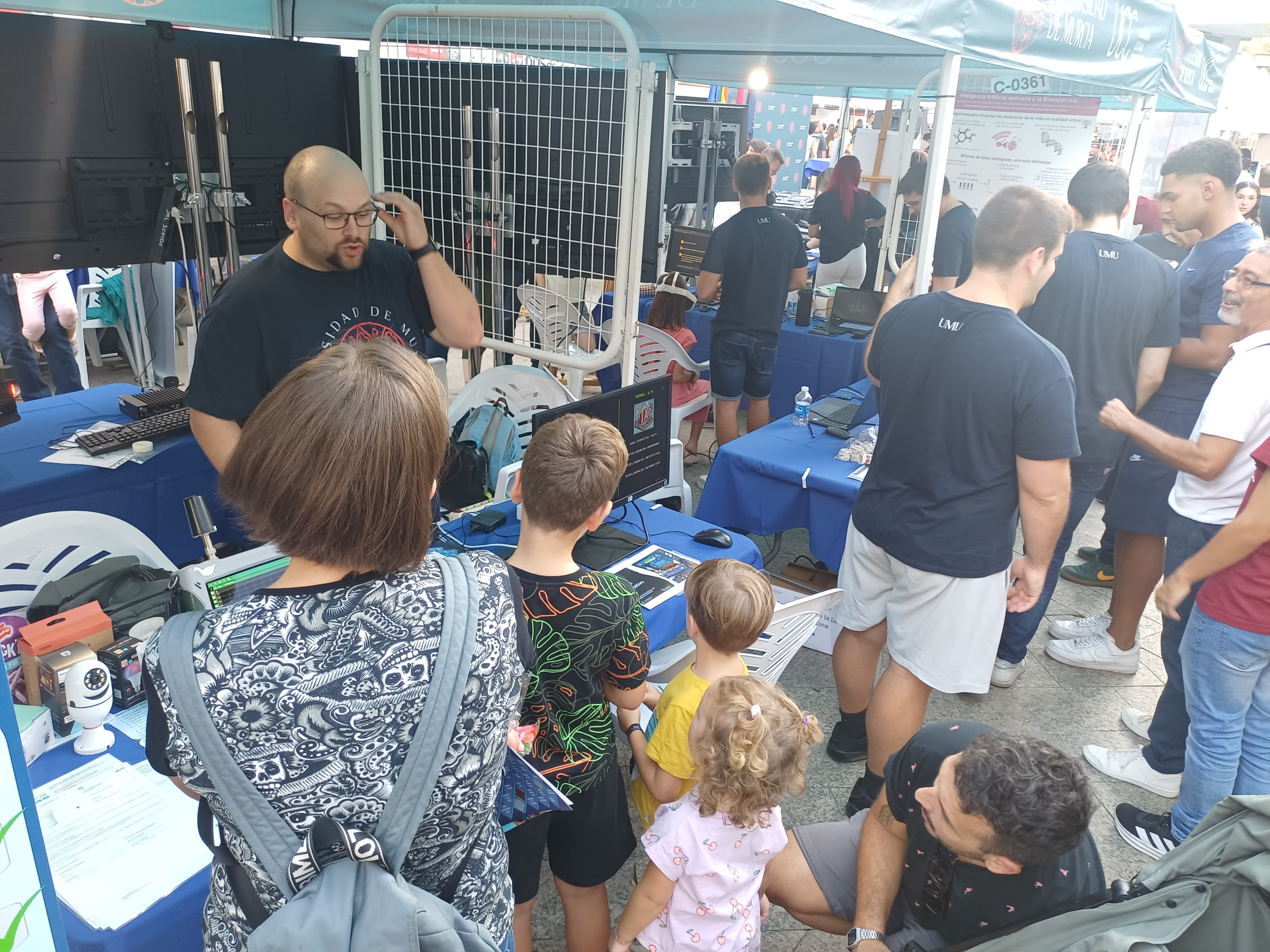
About Participation & Highlights
This year’s program extended beyond campus walls, turning Murcia’s central plazas into living laboratories. Research groups and initiatives like CyberCamp UMU and the CERTIFY Project joined forces to present cutting-edge topics in technology, innovation, and digital literacy.
Visitors explored how cybersecurity, sustainability, and education connected through hands-on experiments and creative demonstrations. The CERTIFY Project, in particular, showcased how universities could strengthen trust in digital learning and professional certification — an example of how European collaboration enhanced science and education at the local level.
The event was completely free and open to everyone, designed to spark curiosity and encourage conversation between researchers and citizens.
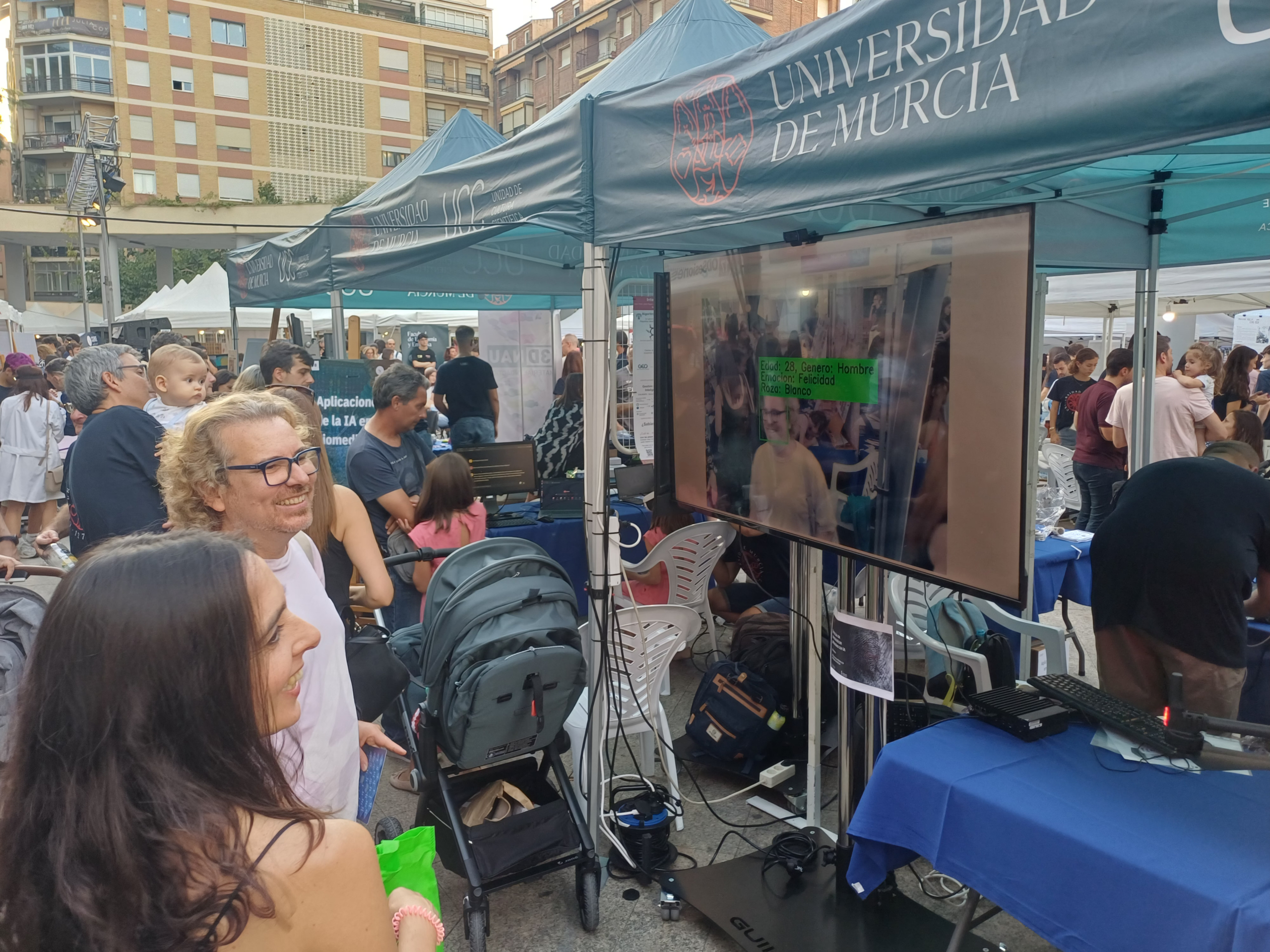
About the Mission & Impact
Beyond the fun and experiments, the night had a deeper goal: to bridge the gap between science and society. Through initiatives like the CERTIFY Project, the University of Murcia emphasized transparency, inclusivity, and innovation in education and research.
By inviting the public to meet the people behind scientific discoveries, the event promoted trust in science and inspired new generations to pursue careers in STEM. This edition - the largest in the university’s history - reflected the institution’s growing commitment to open science, collaboration, and European values of shared knowledge.
